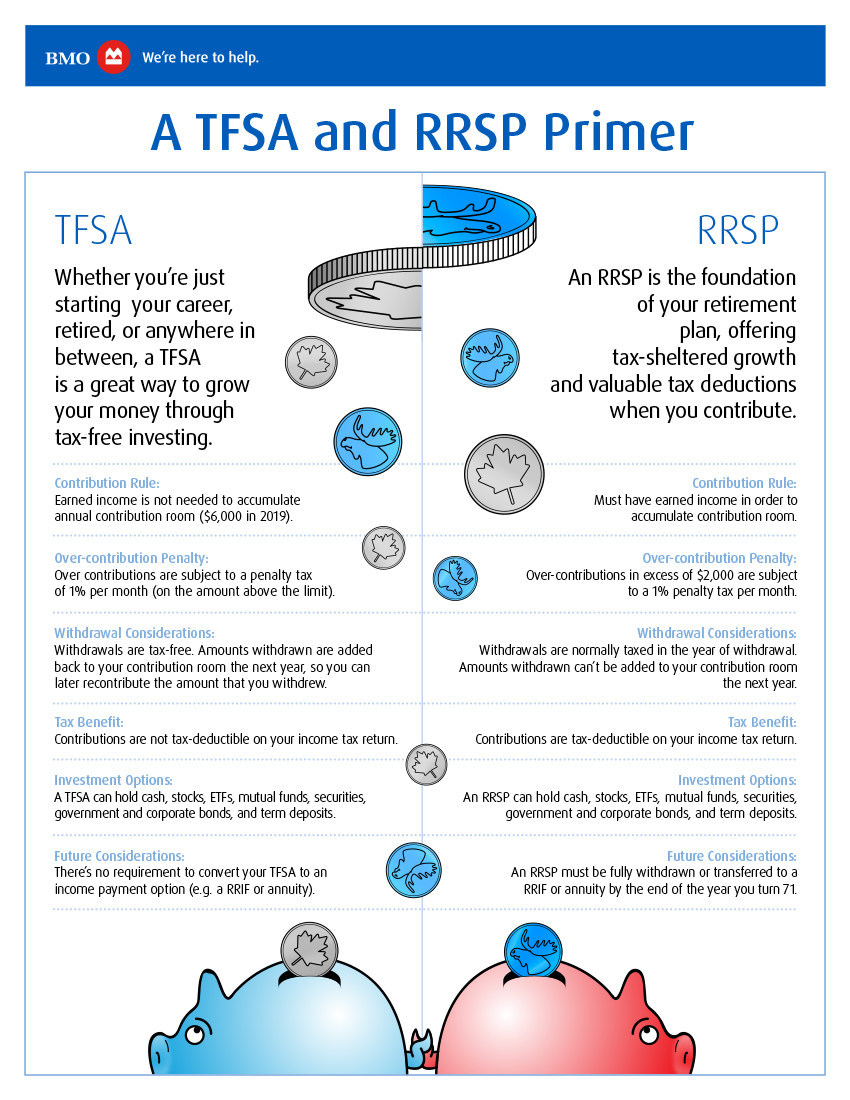Looking to set aside some savings in 2023?
What is a Tax Free Savings Account (TFSA)?
According to TD Bank the definition is as follows:
"A Tax-Free Savings Account (TFSA) is a registered tax-advantaged savings account that can help you earn money, tax-free.
You can think of a TFSA like a basket, where you can hold qualified investments, that may generate interest, capital gains, and dividends, tax-free.
Whether you're saving for your dream wedding, a rainy day, your first home, or an extended vacation, a TFSA can help you reach your goals sooner. To get you started, we break down: what is a TFSA, how it works, and how it can benefit your savings plan."
What is a Registered Retirement Savings Plan (RRSP)?
According to TD Bank the definition is as follows:
"A Registered Retirement Savings Plan (RRSP) is a savings plan, registered with the Canadian federal government that you can contribute to for retirement purposes.
When you contribute money to a RRSP, your funds are "tax-advantaged", meaning that they're exempt from being taxed in the year you make the contribution. Any investment income earned from investments held within the RRSP can then grow tax-deferred, as long as the money remains within the RRSP, until it's withdrawn.
RRSP contributions are tax-deductible, meaning that they can be deducted on your current year tax return, potentially reducing the total amount of taxes you pay."
But the big question is...which one is right for you?
'The key difference between a TFSA and an RRSP is that a TFSA is a tax shelter; that is, no taxes will be payable on investment gains. An RRSP is a tax deferral; taxes will have to be paid on investment gains, but only when funds are withdrawn. Of course, the RRSP has the added sweetener of a partial tax refund when clients make the contribution to the fund. But how to decide between the two?
“What I tell my clients is the decision depends on two main things,” says Allan Small, senior investment advisor with Allan Small Financial Group at iA Private Wealth Inc. in Toronto. “Do you need – or could use – a tax deduction? And do you need access to this money anytime soon?”
He tells investors to consider RRSPs as a longer-term investment vehicle in which they can invest money and also get a tax deduction.
“If they need to use some of the money to buy a home or for education, that’s fine, but if they may need the money for something else, then an RRSP is not the right account,” Mr. Small says.
Instead, he would point them toward a TFSA because, unlike an RRSP, withdrawals can be made without any tax implications.
Mr. Small has observed that TFSAs have been taking gradually from RRSPs in terms of investors’ choice for their dollars. A key reason is lifetime contributions can now be as much as $81,500 per person – twice that amount for a married couple.
“That’s quite powerful,” he says. “You combine that with being able to access the money anytime without tax implications, and that’s what investors want.”
But every client’s different, says Melanie Johannink, an advisor with Johannink Financial Solutions Inc. at Sun Life Financial Investment Services (Canada) Inc. in Bolton, Ont. For her, it’s an art and science.
Specifically, she says people shouldn’t just contribute to their RRSPs just for the sake of doing so, but only when it’s likely that they’ll be in a lower tax bracket in retirement.
Ms. Johannink typically focuses on current income as a starting point. If the client is earning $55,000 a year or less, she recommends contributing to a TFSA.
“There’s not a significant tax deferral for you to justify putting a ton of money into your RRSP – and the income tax rebate is not going to give you much,” she says.
Her advice to clients is to contribute to a TFSA throughout the year, then when preparing their annual tax return, see how much an RRSP contribution would help offset their taxes, and if that’s a significant amount, transfer funds from the TFSA into an RRSP contribution.'
For A Deeper Dive: CLICK HERE

